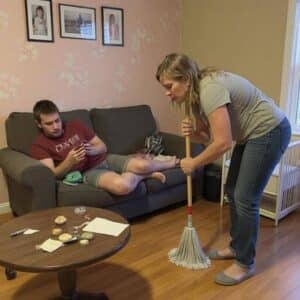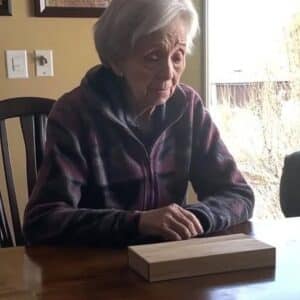I should’ve known something was off the minute Lily pinned her hair back.
It was the first time she wasn’t hiding the scar.
Three years ago, that scar had broken her. Eleven years old, burned in a freak camping accident. One propane tank, a burst of flame, and everything changed. The doctors said we were lucky. That it could’ve been worse. But they didn’t see her crying in the bathroom mirror or hear the sound of it shattering.
I did.
So yeah, when she tucked her hair behind her ears and said, “I’m tired of hiding,” I should’ve known something was coming.
Melissa—my fiancée—had invited us to her family’s Fourth of July barbecue. It felt like a milestone. New beginnings. Maybe even peace.
But peace doesn’t usually come with wine, grilled corn, and a plastic smile that cuts like a knife.
Dinner had gone surprisingly well. Lily sat among strangers, half-smiling through small talk, laughing at a cousin’s joke. I could finally breathe again—until Melissa’s mother leaned across the table.
“Oh, sweetie,” she chirped, like she was about to offer gum. “What happened there? That scar—was it traumatic?”
Lily blinked.
I froze.
But she wasn’t done.
“People must stare, right? I mean, they can’t help it. But you’re not planning to leave your face visible for the wedding, are you? It might distract from the bride.”
Lily’s fork stopped halfway to her mouth.
Melissa looked down at her wine. Silent.
That was the worst part—not the question, not even the smile. It was Melissa’s silence. The kind of silence that made my stomach twist.
I leaned close. Whispered, “Do you want to go?”
Lily nodded, but then added, “After I say something.”
And just like that, the air changed.
She stood slowly. The table went quiet.
“If we’re Photoshopping things that make people uncomfortable,” she said, voice calm, sharp, “can we edit out your 20 extra pounds? Personally, I think they ruin the aesthetic.”
Gasps. Clattering silverware. A cousin dropped their drink.
Melissa’s mother went red—shock, anger, maybe shame. I wouldn’t know. I didn’t look. I was too busy watching my daughter standing there like she’d been waiting for this moment her whole life.
Melissa hissed after us on the porch.
“You owe my mom an apology. It was a joke. She was breaking the ice.”
No.
Jokes are supposed to be funny.
And that was the moment I saw Melissa clearly—not as my partner, but as someone who’d failed the simplest test: protect the kid. Just once.
She called later that night.
Said I’d disrespected her family. That Lily needed “more therapy” if she couldn’t handle harmless jokes.
I didn’t raise my voice. I didn’t argue.
“If you can’t stand up for my daughter when she needs you most,” I told her, “this relationship is over.”
And it was.
No second thoughts. No looking back.
Because that night, as I watched Lily sleep—scar lit softly by the hallway light—I realized something:
She’s not the one who needed fixing.
She never was.





